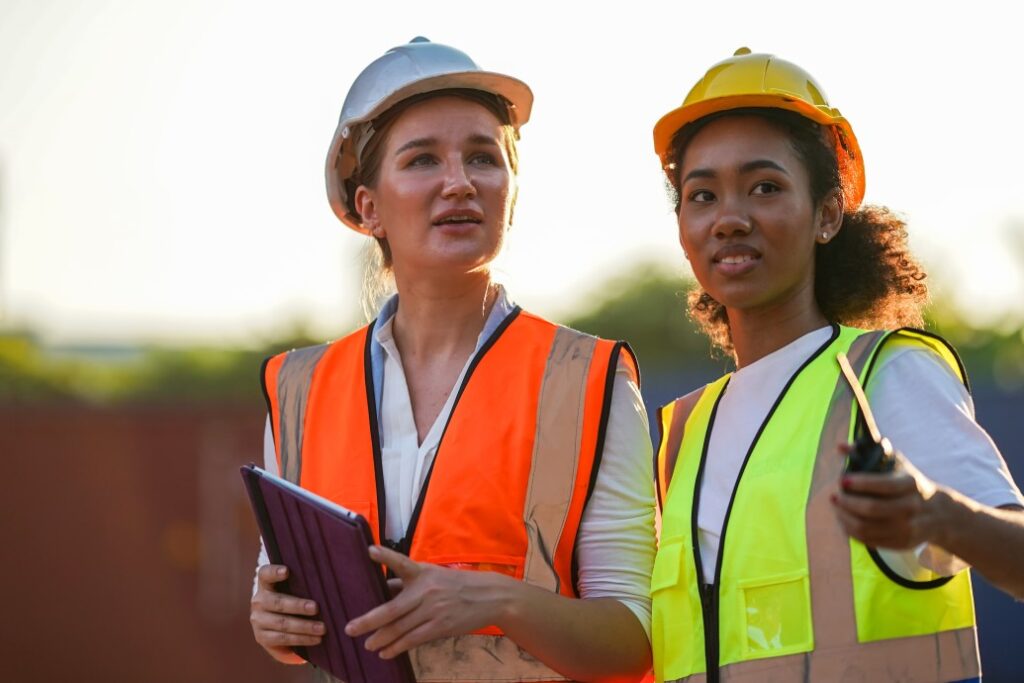What Is A Construction Superintendent?
A construction superintendent is pivotal in the construction industry, overseeing onsite activities to ensure projects proceed safely, on schedule, and within budget. This role involves supervising subcontractors, coordinating tasks, and maintaining high standards of quality and safety. Collaboration with project managers and construction estimating services is essential for effective project planning and resource allocation, ensuring timelines and budgets are met.
The superintendent’s responsibilities include ensuring regulatory compliance, enforcing safety protocols, and maintaining clear communication among stakeholders. They play a critical role from project inception to handover, ensuring successful project delivery that meets client expectations and industry standards. Their expertise in problem-solving, decision-making, and team leadership ensures seamless project progress, making them indispensable in construction management.
1. Supervisory Responsibilities:
One of the primary responsibilities of a construction superintendent is to supervise and oversee all onsite activities. They are responsible for coordinating subcontractors, scheduling tasks, and ensuring that work progresses according to plan. This involves regular site visits, inspections, and maintaining communication with project managers, contractors, and workers to address any issues that may arise promptly.
2. Project Planning and Coordination:
Construction superintendents are heavily involved in project planning and coordination. They work closely with project managers and construction estimating services to develop detailed project schedules, allocate resources efficiently, and ensure that timelines are met. Coordination involves overseeing material procurement, equipment logistics, and ensuring that all necessary permits and approvals are obtained in a timely manner to prevent delays.
3. Quality Control and Assurance:
Ensuring high-quality construction standards is another critical aspect of a superintendent’s role. They conduct regular inspections and quality assurance checks to ensure that work meets specified standards and that any deviations are addressed promptly. This involves attention to detail and a thorough understanding of construction techniques and materials to uphold the integrity of the project.
4. Safety Management:
Safety is paramount in construction sites, and superintendents play a pivotal role in enforcing and promoting safe practices. They ensure that all workers and subcontractors adhere to safety protocols and regulations set forth by OSHA (Occupational Safety and Health Administration) and other regulatory bodies. This includes conducting safety meetings, implementing safety training programs, and maintaining a safe working environment to prevent accidents and injuries.
5. Budget and Cost Management:
Effective budget management is essential for the success of any construction project, and superintendents collaborate closely with construction estimating services to monitor costs and expenditures. They review project budgets, identify cost-saving opportunities, and make informed decisions to keep the project within budgetary constraints. This may involve negotiating with suppliers, subcontractors, and vendors to obtain competitive pricing and maximize the project’s financial efficiency.
6. Communication and Reporting:
Clear and effective communication is key to ensuring that all stakeholders are informed and aligned throughout the construction process. Superintendents maintain regular communication with project managers, clients, subcontractors, and other relevant parties to provide updates on progress, address concerns, and coordinate activities. They also prepare detailed reports documenting project milestones, expenditures, and any issues encountered, facilitating transparency and accountability.
7. Problem Solving and Decision Making:
Construction projects are dynamic environments with various challenges and unexpected issues that may arise. Superintendents are adept at problem-solving and making quick, informed decisions to resolve issues and keep the project on track. This requires critical thinking, analytical skills, and the ability to prioritize tasks effectively to minimize disruptions and maintain project momentum.
8. Team Leadership and Motivation:
Effective leadership is essential for managing construction teams and fostering a productive work environment. Superintendents provide direction, guidance, and motivation to onsite personnel, ensuring that teams work cohesively towards common goals. They address conflicts, encourage collaboration, and recognize achievements to boost morale and maintain high levels of productivity throughout the project.
9. Regulatory Compliance:
Construction projects must comply with a myriad of local, state, and federal regulations, codes, and permits. Superintendents are responsible for ensuring that all regulatory requirements are met throughout the construction process. This involves staying updated on current regulations, obtaining necessary permits, and conducting inspections to ensure adherence to building codes, environmental regulations, and safety standards.
10. Project Completion and Handover:
As a construction project nears completion, superintendents oversee final inspections, coordinate punch lists (items that need to be completed or corrected before final acceptance), and ensure that any outstanding issues are resolved. They facilitate the smooth handover of the project to the client or owner, ensuring that all documentation, warranties, and operational manuals are provided as required.
11. Schedule Management:
Construction superintendents are responsible for maintaining project schedules and timelines. They work closely with project managers and subcontractors to ensure that tasks are completed on time and in the correct sequence. This involves monitoring progress, identifying potential delays, and implementing strategies to mitigate schedule disruptions effectively.
12. Stakeholder Relations:
Effective stakeholder management is crucial for the success of construction projects. Superintendents maintain positive relationships with clients, architects, engineers, and other stakeholders by addressing concerns, providing regular updates, and ensuring that project goals align with stakeholders’ expectations. Clear communication and proactive engagement help build trust and facilitate smooth project execution.
13. Environmental Sustainability:
In today’s construction industry, there is an increasing emphasis on environmental sustainability. Superintendents play a role in implementing sustainable construction practices, such as waste reduction, energy efficiency, and the use of eco-friendly materials. They ensure compliance with environmental regulations and seek opportunities to minimize the project’s environmental footprint while promoting sustainability initiatives.
Conclusion:
In conclusion, construction superintendents play a critical role in the successful execution of construction projects by overseeing onsite activities, coordinating teams, and ensuring adherence to quality, safety, budget, and schedule requirements. Their multifaceted responsibilities require a combination of technical expertise, leadership skills, and effective communication to navigate the complexities of construction environments effectively. By diligently managing resources, addressing challenges proactively, and maintaining regulatory compliance, superintendents contribute significantly to delivering projects that meet or exceed client expectations while upholding industry standards.



